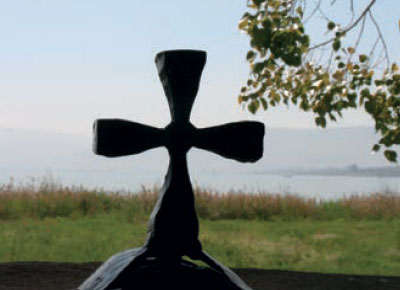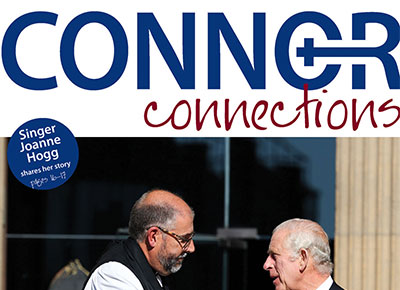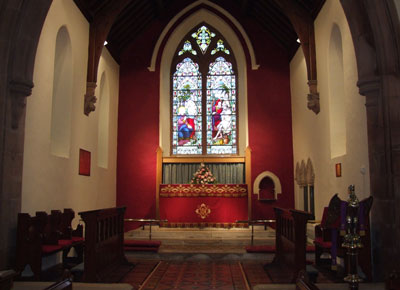Lecture at Queen’s unpacks a Christian vision for education
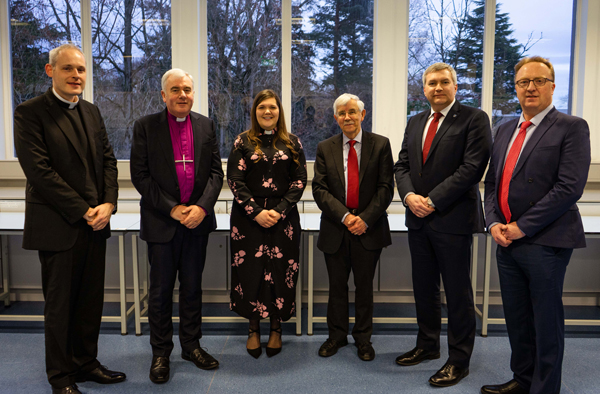
At the 2023 Church of Ireland Theological Lecture at Queens are, from left: Fr Dominic McGrattan, Catholic Chaplain at Queen’s; Bishop David McClay; the Rev Danielle McCullagh, Church of Ireland and Methodist Chaplain at Queen’s; Professor Trevor Cooling, speaker; Dr Jonathan Heggarty, Stranmillis University College; and Dr Peter Hamill, Church of Ireland Board of Education (Northern Ireland). Photo: David Pope.
Christians can model a warm sense of covenant and hospitality in how they provide education on behalf of the state, leading educationalist Professor Trevor Cooling said on Monday evening (March 20) as he delivered the Church of Ireland’s 65th Annual Theological Lecture at Queen’s.
Professor Cooling, from Canterbury Christ Church University, was speaking at Stranmillis University College, which is currently marking its centenary year.
He suggested that there is a difficulty when facts are elevated above values as everyone interprets knowledge in certain ways depending on the values which they hold. “We are all people of faith,” he remarked, “because knowledge is not just something ‘out there’ – it is personal; it is something we interact with as human beings.”
Drawing on the thinking of Bishop Lesslie Newbigin, he noted that the Church had a role in preparing lay people for their vocation and to do this well, lay people also need to think very carefully about their context. The theologian Professor NT Wright, for example, has compared applying the Bible in modern societies to discovering an unfinished Shakespearean play with four chapters already written and asking a group of specialists to write endings for it. The result should be ‘consistent with the authority of the first four acts but will be innovative, depending on the interests and concerns of the specialist writer.’
One innovative application, highlighted by a research project which studied teachers working in church schools in England, was made by a PE teacher who explored how he could teach the push-pass in hockey. This meant teaching the move and then encouraging students to partner in twos and help each other to improve their performance, therefore modelling a Christian theology of servanthood rather than the populist influence of élite performance.
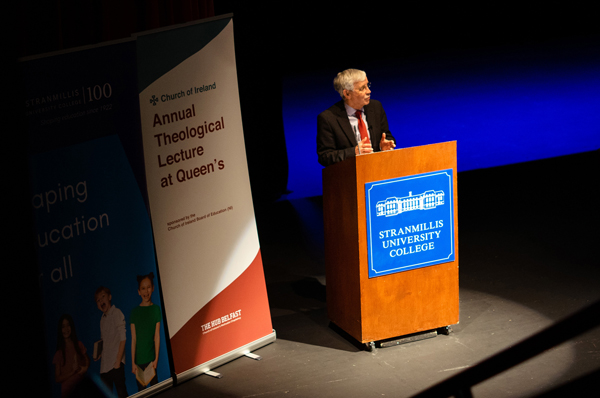
Professor Trevor Cooling delivers the 2023 Church of Ireland Theological Lecture at Queen’s in Stranmillis University College. Photo: David Pope.
In another setting, a primary school teacher explored how practical hospitality to the stranger (as lived out through the Old and New Testaments) can be a very positive value in our society today.
In a science lesson, co-operating as a group in a way that makes the newcomer feel like a contributor, with a curiosity about his or her views, also shows the Christian faith in practice in schools (as well as developing an understanding of how scientific teams work). Teachers who wish to explore this theme can find out more on the www.whatiflearning.com website, which is intentionally built around concrete examples of teachers connecting Christian faith with their teaching.
This approach also reshapes how we think about salvation, so that we think in terms of God’s promised new Heaven and new Earth, and the promise of a resurrected life to share in that reality.
Professor Cooling concurred with NT Wright’s conclusion that what we do with our lives ‘in the present matters because God has a great future in store.’ Christian teachers therefore have an important role as providing a faithful presence and as ambassadors of God’s Kingdom – a life defined by being lived in God’s way that points to God’s promised future – in the places where they serve.
In a diverse society, he outlined two approaches to disagreement – the consensus of conforming to a ‘secular’ position or being part of a coalition whereby people who fundamentally disagree with each other live well together in the same space.
And, in conclusion, he noted that covenant in a biblical sense offered a powerful theological model for church schools where everyone is valued and feels that they belong.
Professor Cooling’s career has taken him from working as a secondary school teacher to lecturing in theology and serving as a diocesan adviser and as CEO of a Christian education charity. He also chairs a primary school board of governors.
He was welcomed by the Bishop of Down and Dromore, the Rt Rev David McClay, and the College’s Principal, Dr Jonathan Heggarty. Attendees put their questions to him in a thoughtful and wide-ranging Q&A session immediately following the lecture.
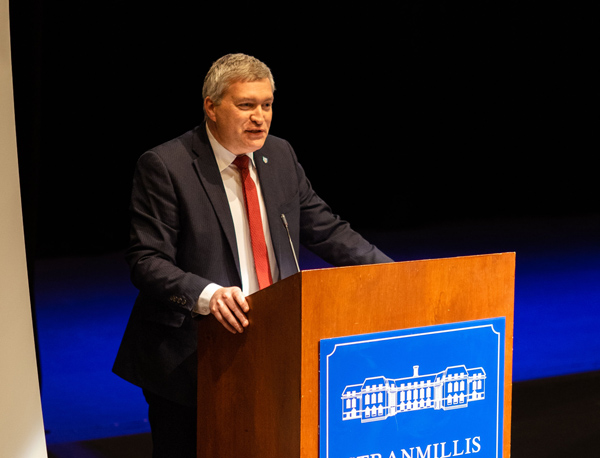
Introductory remarks by Dr Jonathan Heggarty, Principal of Stranmillis University College. Photo: David Pope.
© Copyright The Church of Ireland Diocese of Connor 2025 | Web Design by LD2.digital
